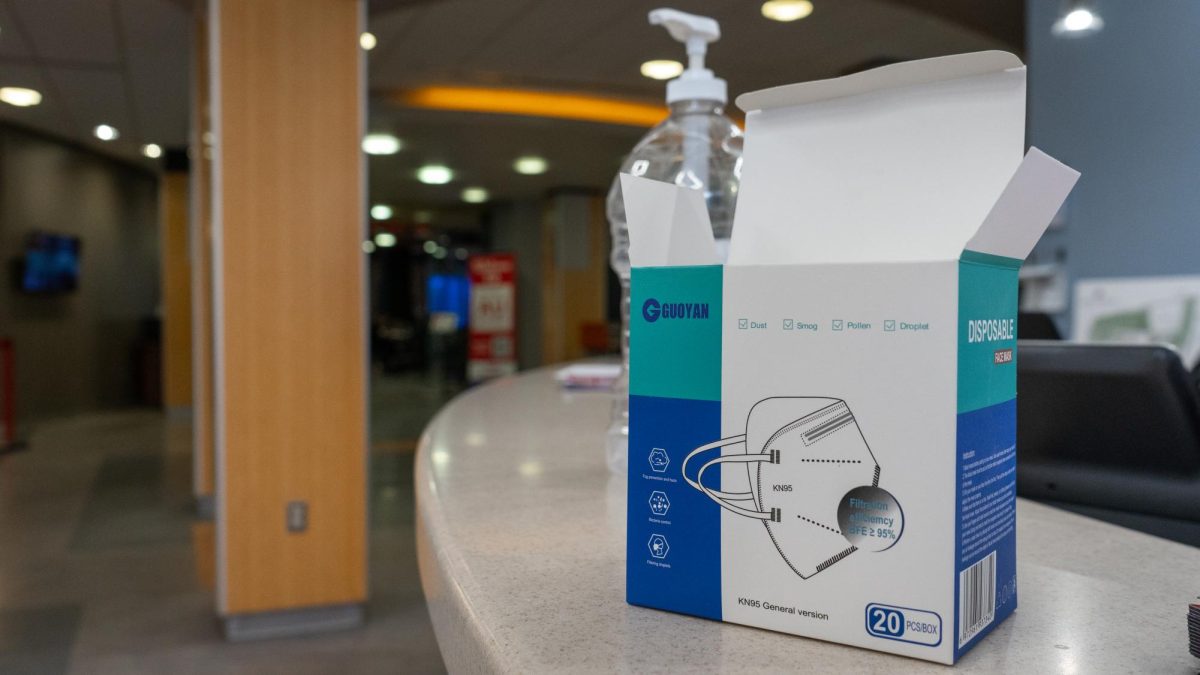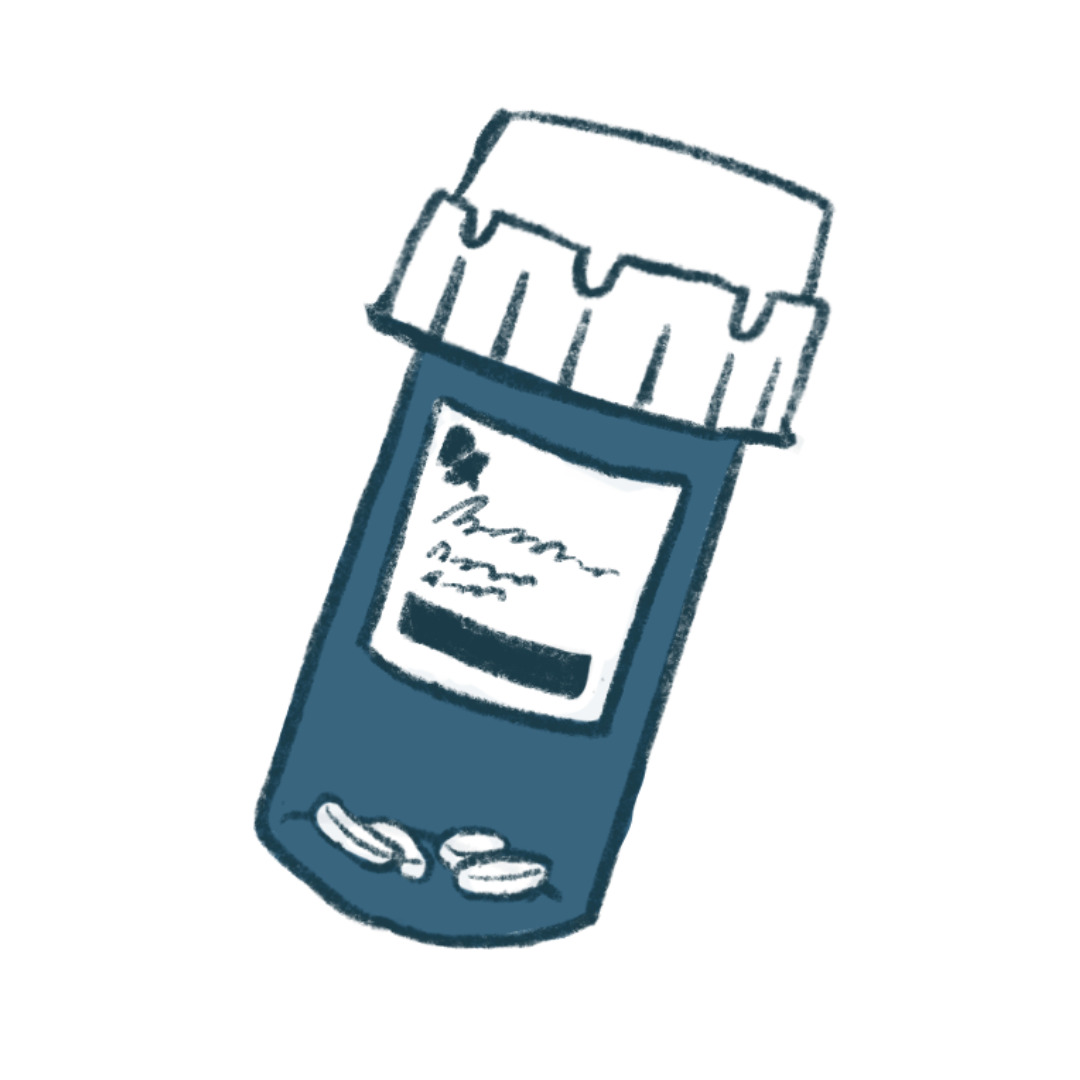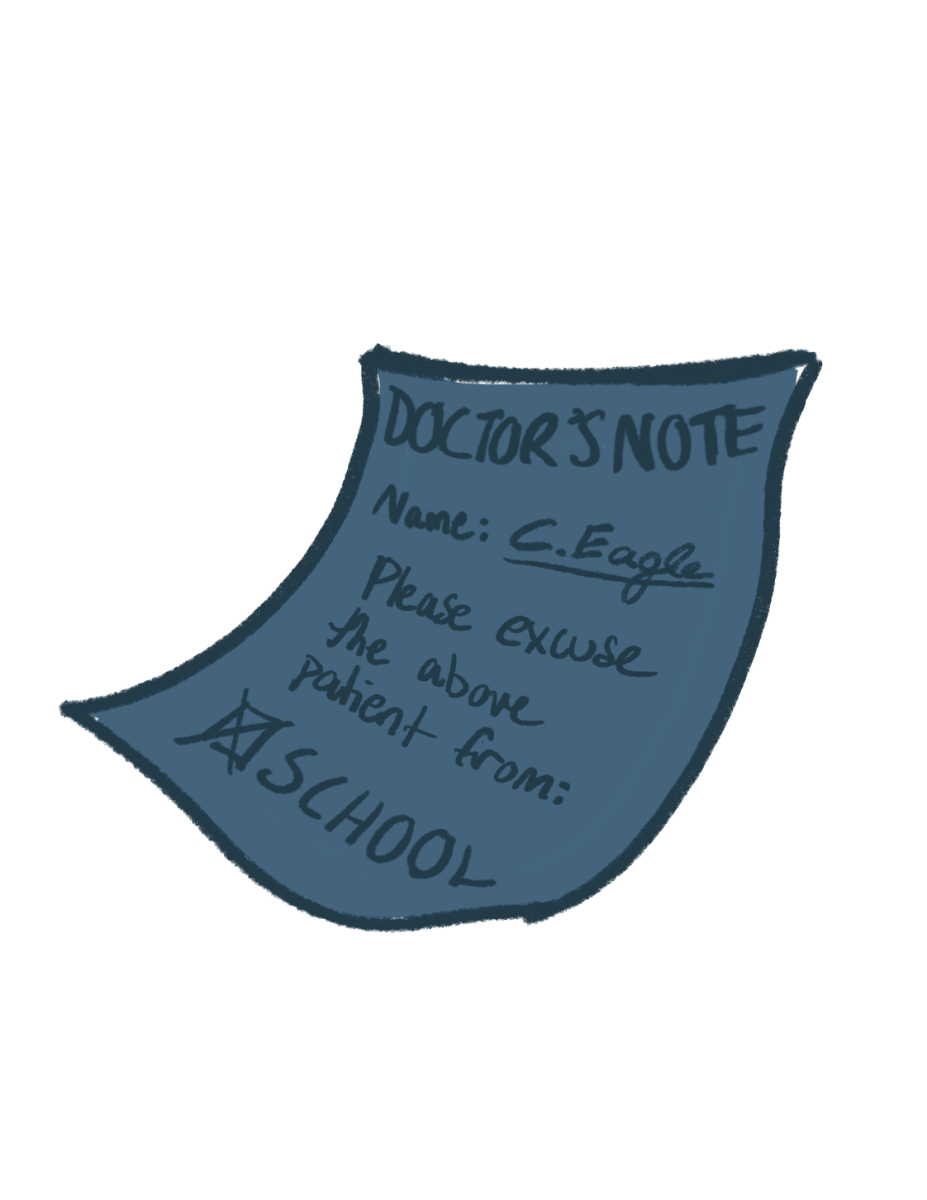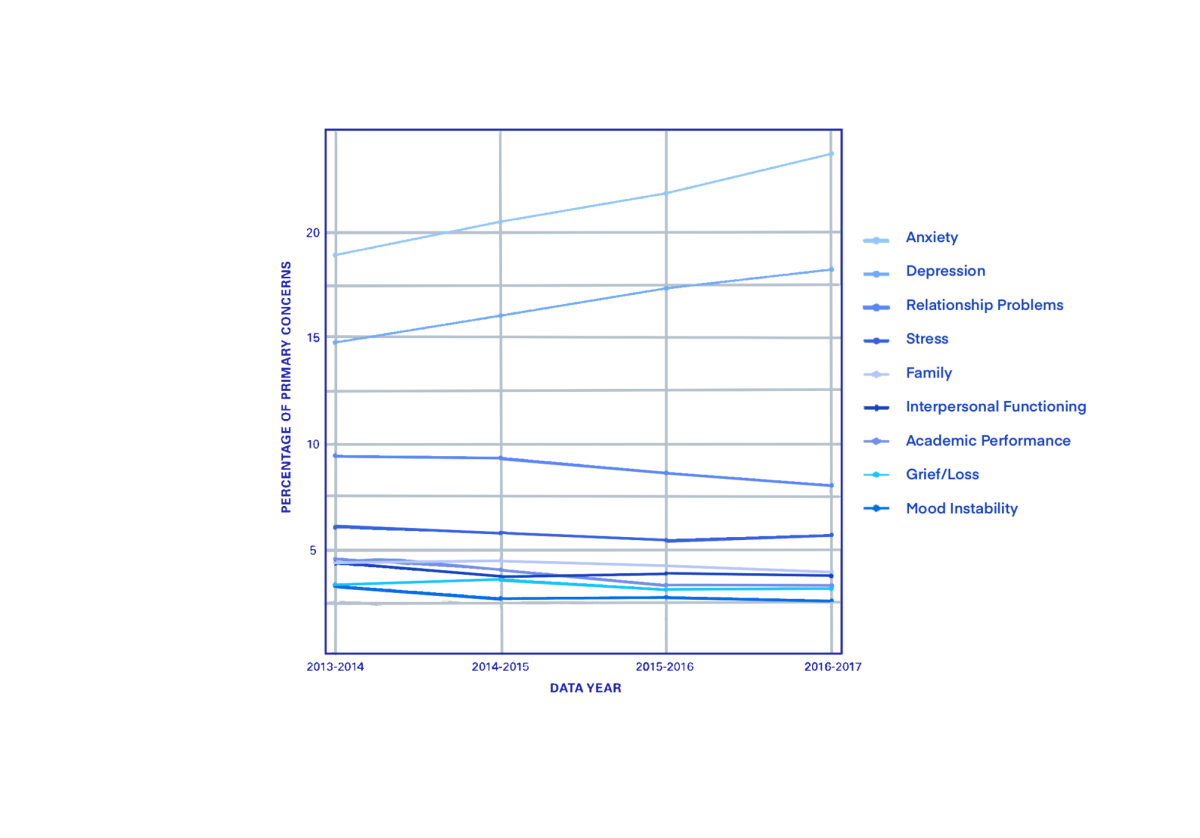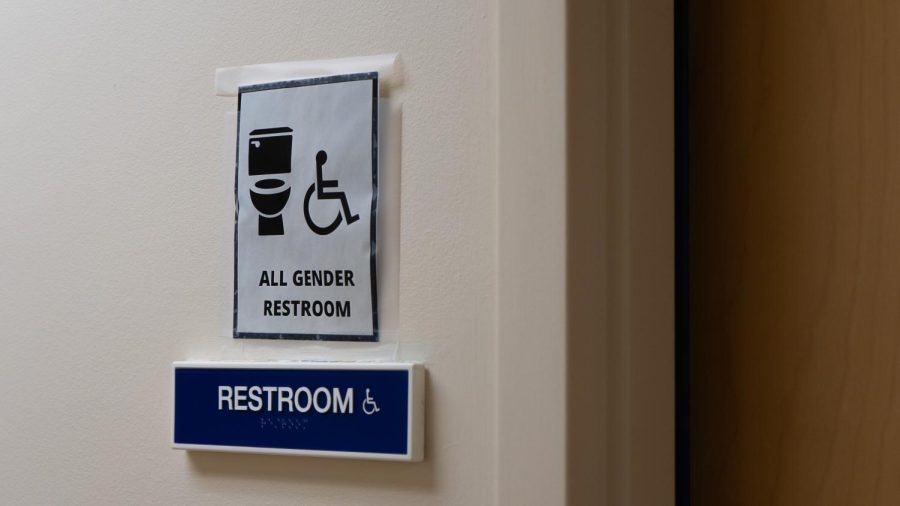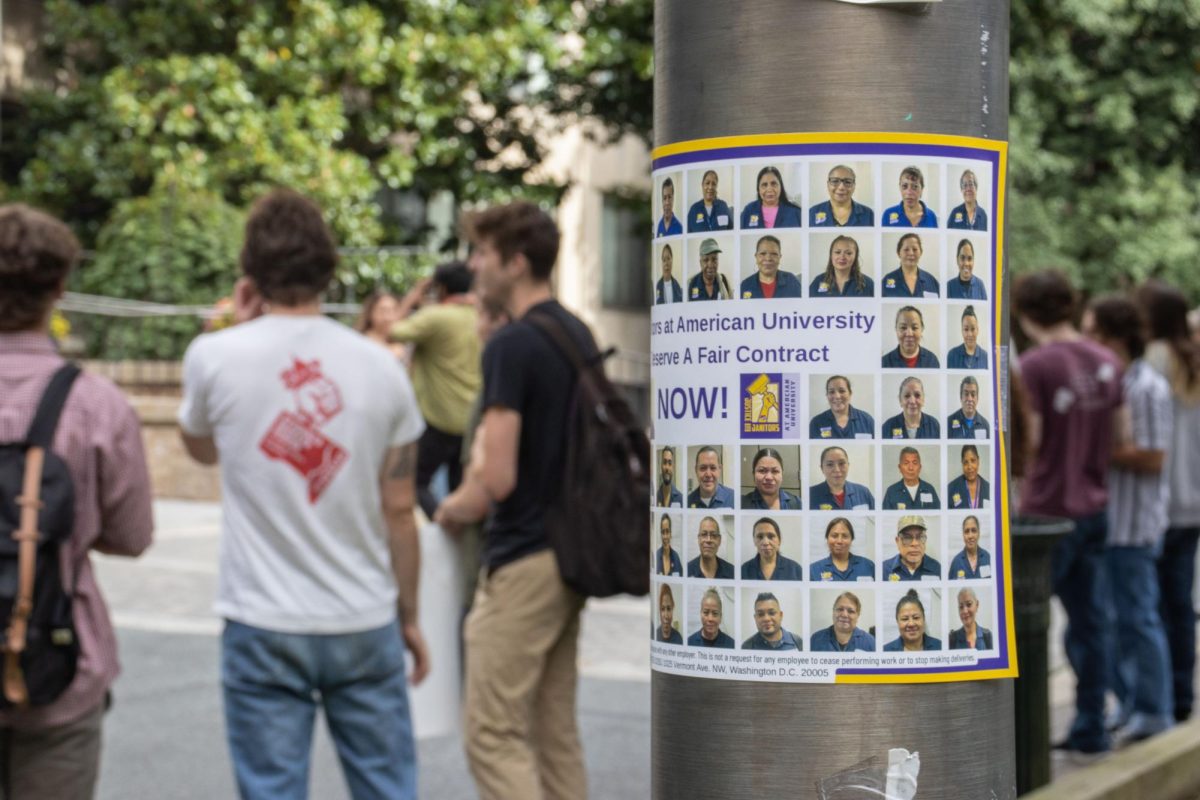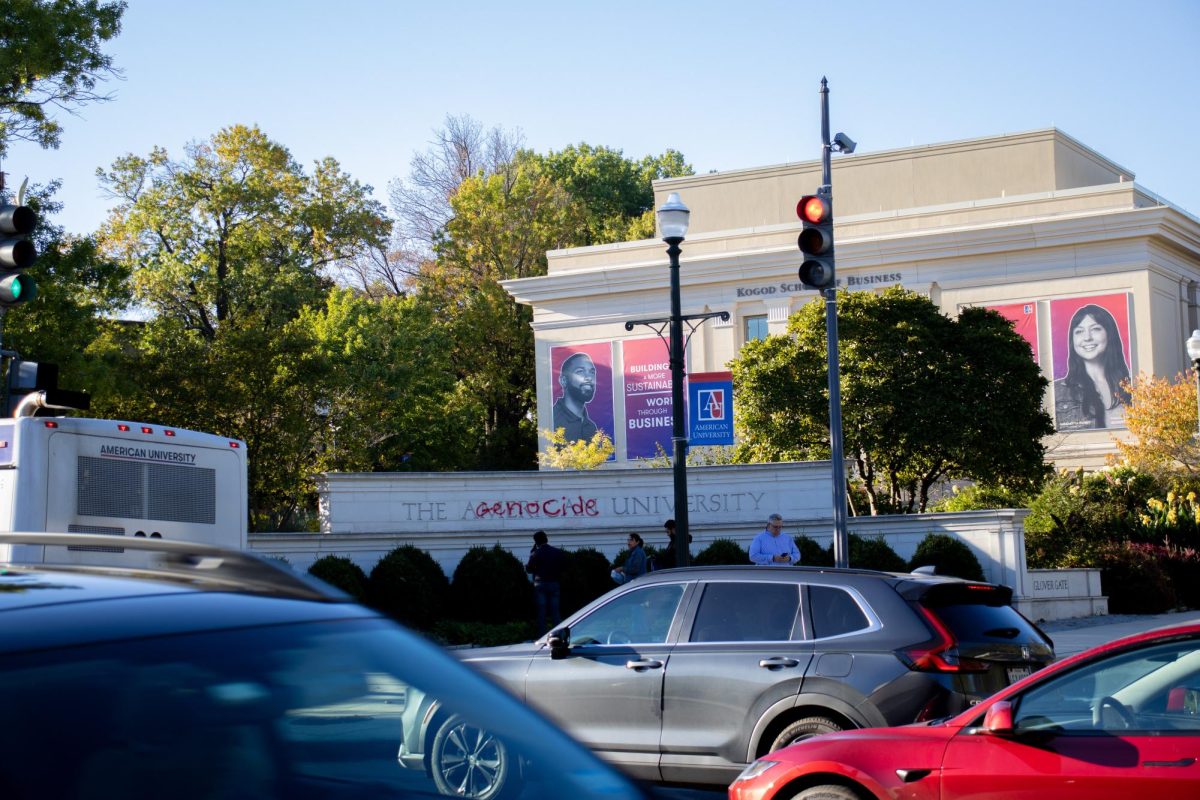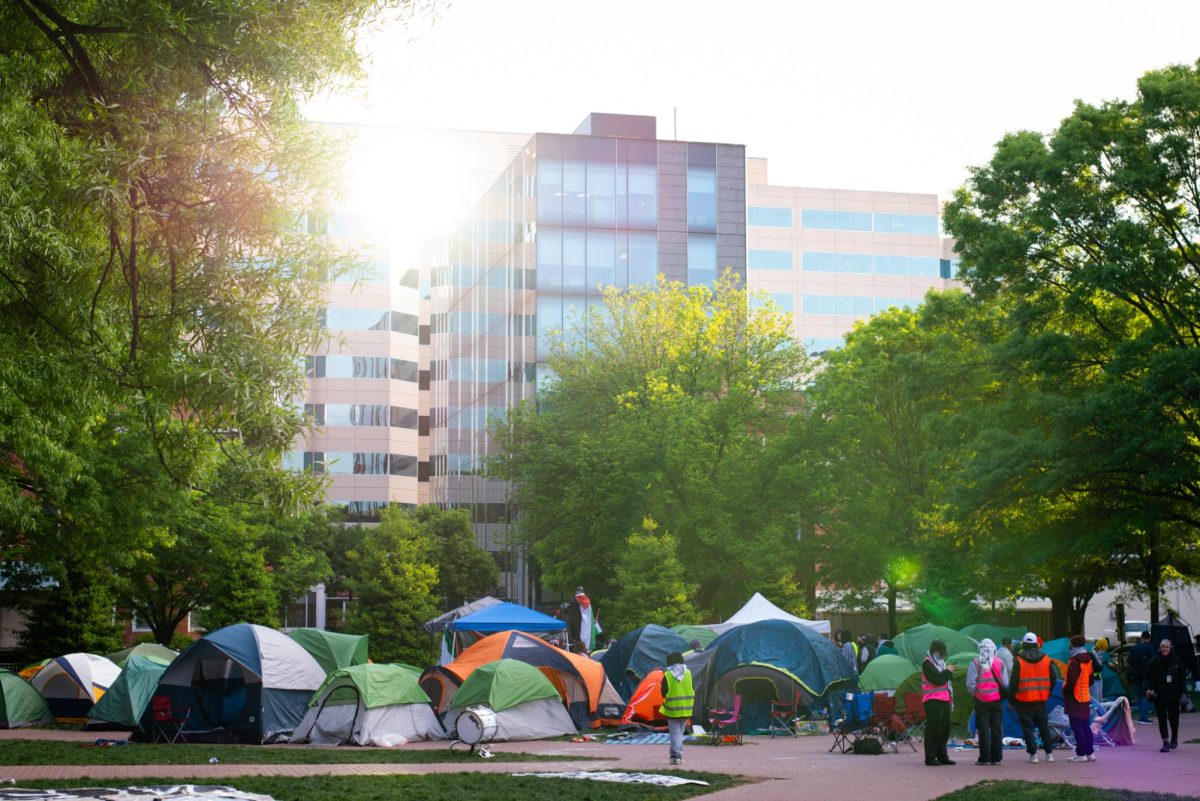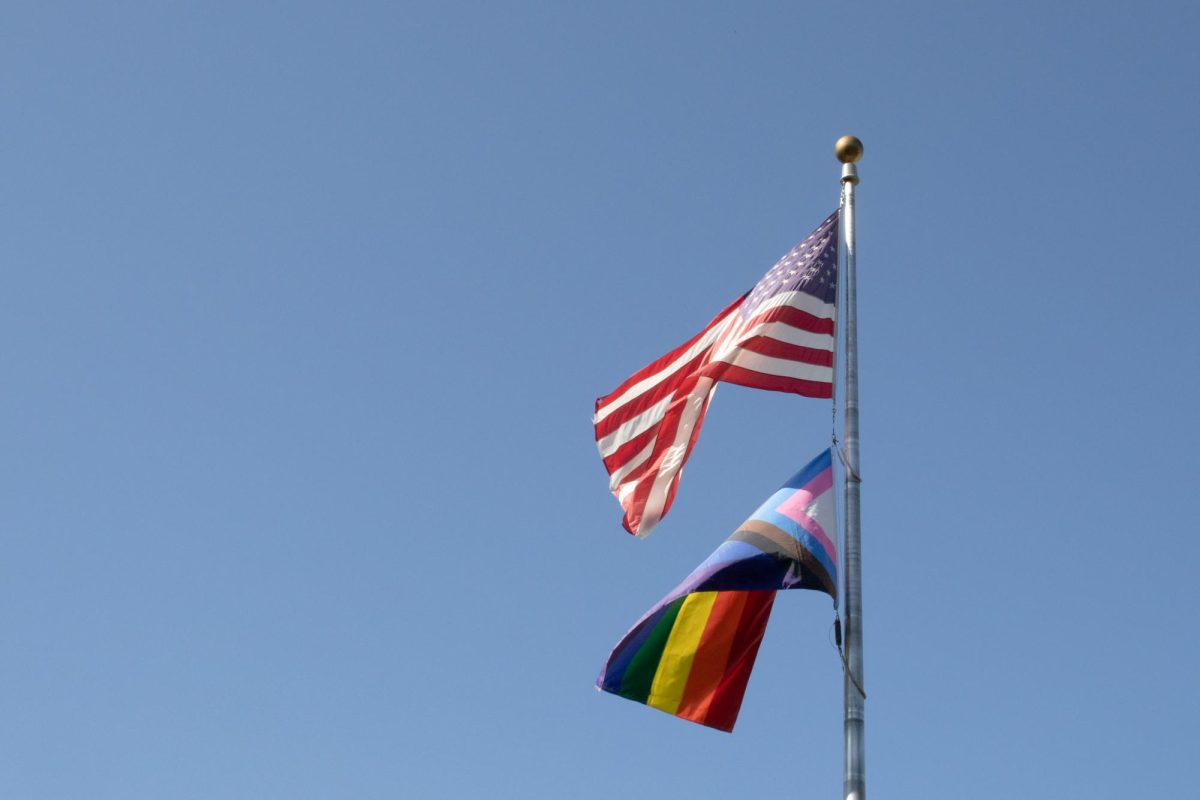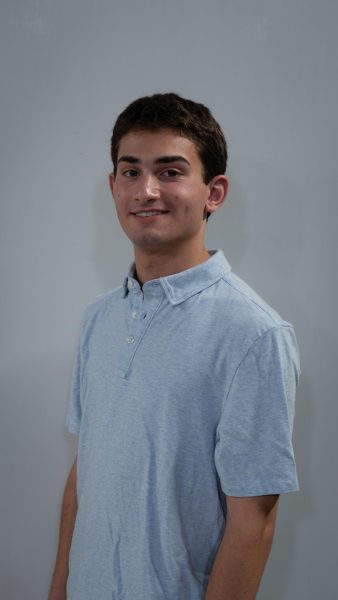On Dec. 15, 2023, American University sent out an email announcing the discontinuation of vending machines providing coronavirus tests on campus.
The update pointed to a third-party vendor, Shield T-3, as the reason for the discontinuation, which said it had ceased operating “COVID test vending machines” at university campuses across the country. Despite the absence of these machines, AU announced that it would continue to provide free coronavirus tests on campus, according to the Dec. 15 email.
At the start of this school year, the university sent out an email on Sept. 11, 2023, with their recommendation for the AU community to receive COVID-19 vaccinations and boosters. To put this strong recommendation into effect, the university provided COVID-19 boosters at on-campus vaccine clinics during the month of October, according to the university’s COVID guide.
Over the course of the coronavirus pandemic, students have been sent home and experiencing new ways of learning. AU students and faculty members said they believe we all have been radically changed by the coronavirus pandemic. Daniel Abraham is a professor and chair of the Department of Performing Arts who has been teaching at AU since 1999.
“We all wanted a fall back to the ways we’ve been doing things before the pandemic, but I think that we have all be influenced by it,” Abraham said.
Near the beginning of the pandemic, on March 9, 2020, the university sent out a communication to members of the AU community that said the school would transition to a fully online learning structure for the following three weeks. American University did not return to in-person classes until August 2021, according to an Aug. 16, 2021, university announcement.
The university published news and notes related to COVID-19 on the “Communications & Memos” page.
The first confirmed case of COVID-19 in the AU student population was on March 16, 2020, according to a university email.
By the time of this first confirmed case in the student population, the university had already canceled in-person classes and shifted to remote learning, according to an email sent on March 10, 2020.
“Our precautionary actions will help limit potential exposure to COVID-19 and enhance our ability to manage and/or isolate any suspected or confirmed cases that may occur at the university,” President Sylvia Burwell said in the March 10 email.
The university released a “COVID Health and Safety Plan” on June 16, 2020. The plan outlined the university’s policies on how operations would run in the midst of the pandemic, including risk mitigation methods. These methods outlined university plans for distancing, schedules, cleaning supplies, testing and masking.
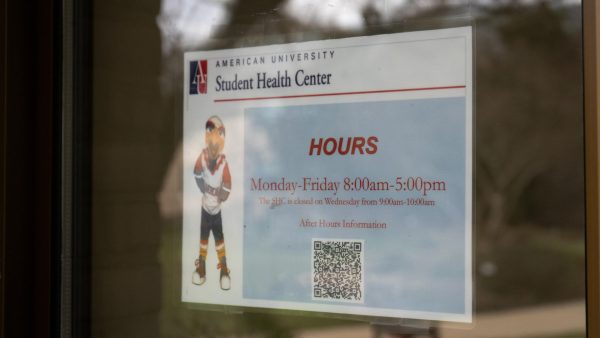
Internal Communications Manager Jasmine Pelaez said that the Health and Safety Plan was dictated by CDC policy and recommendations.
“In the event of any pandemic or infectious disease outbreak, the university is prepared to mobilize our efforts, guided by the Communicable Disease Policy, to support the health and safety of our campus community,” Pelaez said.
As a result of the university’s efforts, professors, like Abraham, said they had to change the way they taught to adapt to a virtual learning setting. Abraham said his department had to rethink and reimagine the definition of performing and arts. Abraham said he wanted his students during the pandemic to be in a “very innovative situation where we are pushing the edge of what is possible.”
The DPA relies heavily, almost solely, on musical sound, Abraham said. He said the university took steps, such as ensuring that all students had access to the same or similar electronic systems, to achieve a sound that most accurately replicated in-person action.
The university also took measures regarding masking with mandates, according to an April 11 email.
Junior Gabriella Hoard said the university expected students who tested positive for COVID-19 to mask up to get food.
“[Students] would just have to go into these public places with their mask and get food from the meal plan, which I don’t really feel like that is safe, you’re exposing people to COVID,” Hoard said.
Hoard said she tested positive for COVID-19 twice while at AU. When she had the COVID-19 virus she wanted more support from the university and its administration. Hoard said she wanted the AU, during the height of the pandemic, to have made testing more accessible around campus.
“Trying to get COVID tests before [having vending machines] was really, really difficult my first two years,” Hoard said.
When there was an uptick of COVID-19 cases in Jan. 2022, the university said that the first three weeks of classes back from winter break would be virtual. When the city of Washington, D.C., “dialed back” its mask mandates on March 1, 2022, AU did not follow.
The university continued with its mask mandates through Sept. 26, 2022, after which AU dropped its mask mandate in classrooms, replacing the mandate for “optional and encouraged” masking, according to an email sent on Sept. 21, 2022.
During the spring semester of 2021, 535 first-year students were brought on campus for the first time through the Mid-Semester Residential Experience. The program was described as “a chance for students, particularly those who had never lived on campus, to be part of a safely distanced, in-person AU community.”
The university had not provided widespread housing to students up until this point in the pandemic, with only approved emergency housing, according to a March 12 university announcement.
The effect of the pandemic can also be seen in how some students say they feel about the transition from high school into college. First-year Karla Azcona said pandemic precautions made the transition more challenging.
“You get used to Zoom classes, and then now, with in-person classes and being in college, it’s a lot more demanding,” Azcona said.
School of International Service Professor Gregory Aftandilian said he made the case that it was more difficult to gauge and understand how much students were paying attention during and in a remote learning environment. He said it makes teaching more difficult and harder to gauge engagement.
“As a teacher, you don’t quite know what everyone’s doing [during Zoom classes],” Aftandilian said.
AU professors had to adapt to different forms of assessing students because of virtual classes during the pandemic. Some professors altered their testing methods because students were not in a classroom.
“Because everyone is home, I had to give a take home exam, an open book exam essentially. That is against what I normally taught,” Aftandilian said.
Students said they also felt challenged with Zoom classes.
“It wasn’t as interactive, it was just the professor lecturing,” said Junior Gelila Ermias.
Inside Higher Ed conducted a Student Voice Survey in April 2022. The survey consisted of 2,000 college students from over 100 institutions.
Nearly half of all students rated their education as fair or poor during the survey. More than half said that they learned less that academic year, compared to previous years before the coronavirus pandemic.
Sophomore Noam Emerson-Fleming, a member of Greek life, said he has compared his experience during the pandemic with the experiences of older students at AU.
“From my understanding, when I talked to some grads and seniors, it was a more chill campus, it was a little bit more of a college experience before COVID, and since COVID, it has been kind of miserable in a lot of ways,” Emerson-Fleming said.


